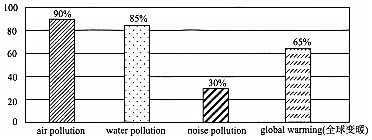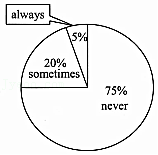A team of scientists are carrying out a project at the University of Greenwich in London. They are trying to find ways to make food on Mars (火星) in the future. The project is called Feeding Mars. It tries to use water, fish and fish waste to grow fruit and vegetables on Mars.
It would take at least 21 months to reach Mars, learn about its surface and return to Earth. So it would be a big help if the spacemen could grow fresh food on Mars itself.
Farming on Mars, however, will be very hard. There’s plenty of water that could be taken from ice just below the surface, but the land on Mars is missing the nutrients (养分) that living things need. The team say that they could solve the problem by growing plants and fish together. Fish waste can then be used to provide nutrients for plants.
“It is expected that you can grow lots of food, such as vegetables, salads, teas and medicinal plants on Mars,” said Dr Benz Kotzen, who leads the project. “You can even harvest (捕获) fish for food then.”
(1). What does the underlined word “It” in Paragraph 1 refer to (指的是)?
A. The future.B. The project.C. The land.D. The planet.
(2). What makes it difficult to farm on Mars?
A. Ice below the surface.B. Too much fish waste.
C. The missing of living things.D. The poor land condition.
(3). How does Dr Benz Kotzen feel about Feeding Mars?
A. Hopeful.B. Doubtful.C. Surprised.D. Funny.



 粤公网安备 44130202000953号
粤公网安备 44130202000953号